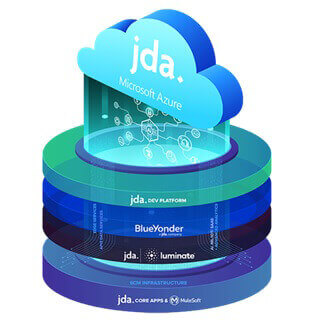The End Of Consumerism’ Redefined
A few weeks ago my RSR partner Nikki Baird wrote an excellent commentary entitled Stores Are Dying… Retailers Are Killing Them, where she pointed out that retailers stubbornly – and at their own peril – refuse to talk about the hard questions facing the store today. Good stuff, and coincidentally her commentary appeared in my inbox at about the same time as yet another spam email announcing “the end of consumerism “.
I tend to toss anything that starts with “the end of <this> ” or “the rise of <that> ” because of a long-held opinion that we only know the beginning or end of macro trends as history – in other words, while they are happening we are all just coping with our daily lives and tend not to see the bigger picture. And so the “end of consumerism ” email got deleted too. But the thought came back to me later that there is a kind of synergy between what Nikki had to say (that retailers are basically shooting themselves in the foot when it comes to the future of the store), and the notion that “consumerism ” as we have known it is changing. And from either angle, it looks like big changes are coming to the retail industry – much more quickly than retailers are ready to handle them.
Nikki’s piece speaks for itself (https://www.rsrresearch.com/research/stores-aren-t-dying-retailers-are-killing-them), so let’s take a look at the other angle, that if it’s not dying, “consumerism ” is changing, and changing fast.
The term “consumerism ” itself is loaded with several conflicting meanings. But for me the term refers to how economies view consumer spending as a primary engine for growth. The U.S. economy is the world’s largest consumer economy, but it’s certainly not the only one. Consumer spending is a major contributor to the economic health of our country. The question is, are consumer behaviors changing to the point where those businesses that profit from consumerism are at risk? A CBS MoneyWatch article in 2014 quoted a study from Havas Worldwide, that “… there’s a global shift underway in patterns of consumption, and especially away from the “shop till you drop” mentality. The survey of more than 10,500 people, ages 16 or older, in 29 global markets found that 70 percent believe over-consumption is putting many societies and the planet at risk. “
Frankly, the U.S. consumer economy doesn’t seem to be headed for a fall soon, regardless of what the Havas study said. According to U.S. Government figures, the trend in consumer spending has been rising steadily since the Great Recession year of 2009 (Figure).

So the notion of the “end of consumerism “, at least in the U.S., seems almost silly. But that doesn’t mean that consumers are continuing to spend blindly on whatever they are told to buy. There are strong indicators that the traditional engines of consumption, such as media advertising, are undergoing real change. For example, the Wall Street Journal recently reported that while TV advertising has recovered modestly but steadily from 2009, print ads continue to decline, while mobile advertising has risen dramatically.
And I think that gets to the heart of the matter: consumers continue to spend (obviously), but their shopping is informed by what they see on their mobile devices. We at RSR have been talking about mobile since 2009, and the entire retail industry has been struggling to integrate consumers’ mobile behaviors with the rest of the shopping experience since (at least) 2010, when consumer adoption of “smart mobile ” devices reached critical mass. What retailers continue to get wrong is that mobile isn’t just a new advertising channel. What it is is a tool that consumers use to make better decisions about their shopping choices.
So, what does “the end of consumerism ” actually mean? For my money, it’s this: consumers are no longer willing to be manipulated into buying things that are not quite what they want or need. Consumers aren’t passive participants in the the retail equation. Instead, they are active and engaged, and hyper-informed. Shopping is now a 24X7 activity. You can attribute this to a number of factors; lessons learned during the hard times of the Great Recession, the rise of digital-native Millennials, whatever. But what it really boils down to is the liberating power of information. Give someone information, and you give them more power.
The “end of consumerism ” really means “the end of passive consumerism “. We are now into the age of the liberated consumer.
